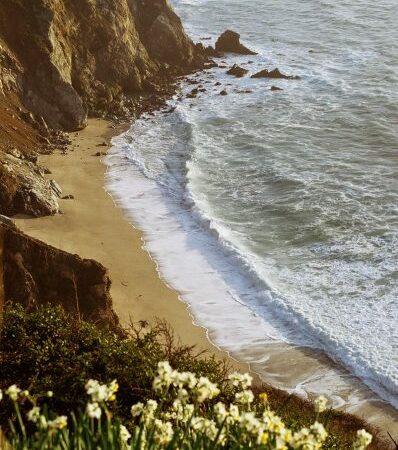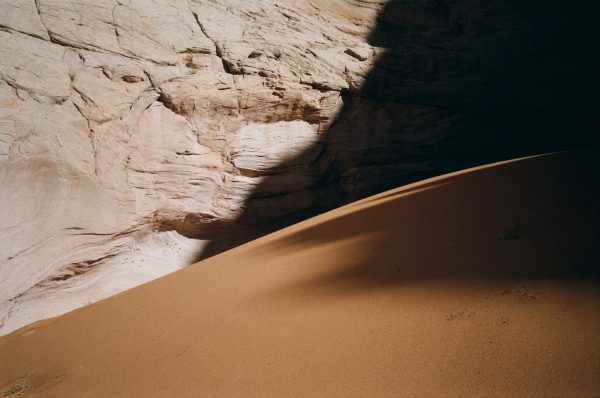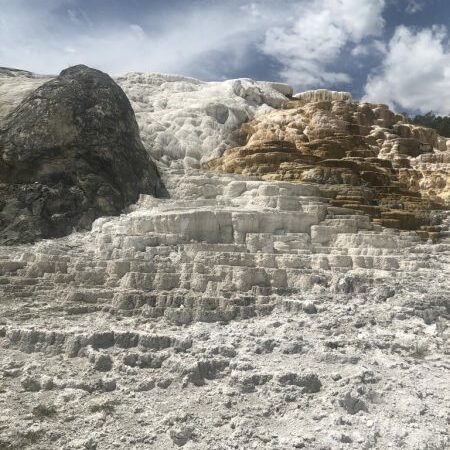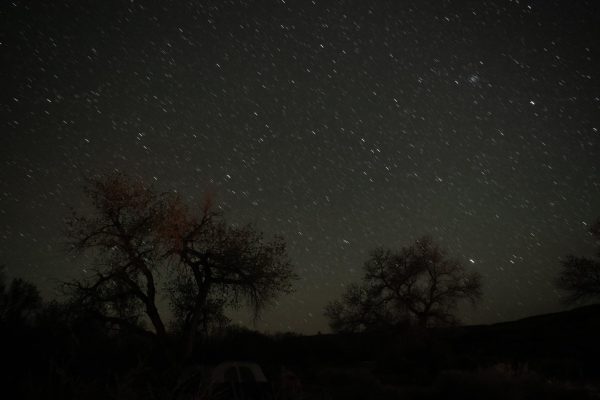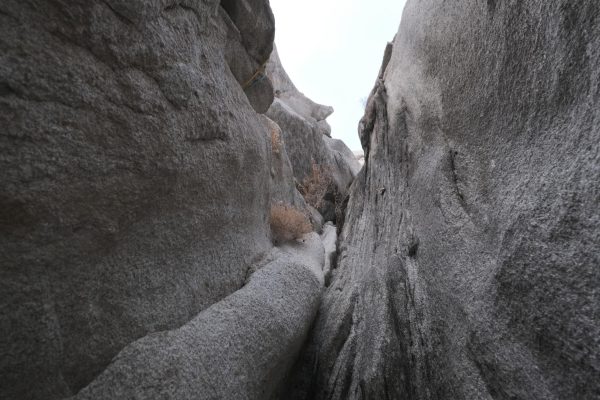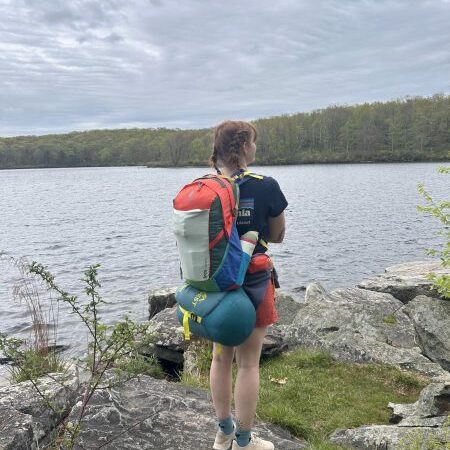Blue As The Lake: The Power of Poetry
By mid-March, spring has arrived on Antelope Island, the large State Park and oasis in the middle of the Great Salt Lake. This island is home to bison, pronghorn antelopes, coyotes, and plenty of birds. And this springtime, it was home to a group of artists, environmentalists, Shoshone leaders, and everyday people gathered for poetry. “Songs from Along the Water-Shed” was an art presentation and poetry reading full of heartfelt words, songs, and dances, all directed at the Great Salt Lake.
As the group listened to the poetry, we were asked to put away our cell phones so we could live in the moment — in that environment — to soak it in. Asked not to clap, but silently shake our hands in approval, we listened not only to poetry but to the natural sounds enveloping it. As poetry’s backdrop, we heard ravens and seagulls and the soft crunching of gravel beneath the feet of people who wandered up and stayed. We also sat in the light breeze and sunlight. What a joy it was to have the sun out after a long winter, sparkling across the water and fields, and turning the bison’s brown hair gold.
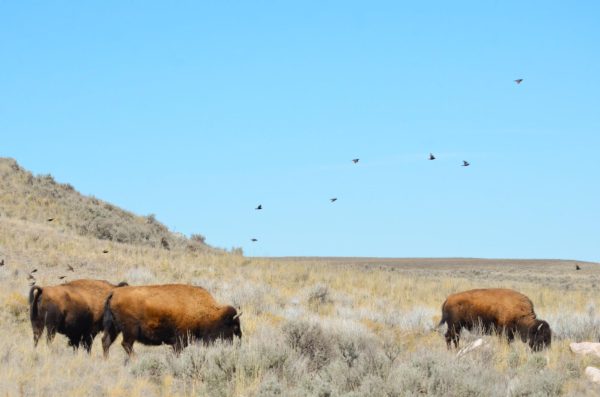
The Great Salt Lake itself is an oasis and has been for generations. Though surrounded by desert, this lake is not deserted. It’s what brought people to this valley. Its large expanse promised freshwater springs pouring into it. That’s why the bison roam here; it’s why the seagulls and the ravens fly overhead and it’s why we have relied on the lake. But now we’re overusing it. That was the reason for the poetry. Poets of all backgrounds were sending their prayers to the lake, to the “dying grandmother” as one Shoshone leader put it.
As I sat listening to these poems, I could feel the heartbeat of every word. I could feel the grief that everyone had for our dying lake, which has been used, overused, and misused. There was a passion there. The kind of passion everyone desires, whether for a career, a cause, or another person. It’s the passion I somehow saw in the bisons’ eyes as they lived and ate, as if it was all they had to worry about on an island set aside for them and the birds.
In an essay titled “The Blue of Distance” from A Field Guide for Getting Lost, author Rebecca Solnit writes about how the color blue increasingly covers things the farther they are from us. It’s the color that overlays distance, and you can see that in the lake. The Great Salt Lake’s blue is pulling away, leaving scarred beaches, blue conspicuously absent, with only grey remnants and a small reflection of the sky looking down on us.
One poet focused on the totality of those reflections. They called the lake a mirror to the heavens because when you look at it, you see the sky. The sky that wraps around this whole earth, that fills every single one of our lungs and binds us all together. Just like the water that keeps us alive, the water that drew our ancestors here, and binds us together.
There is a calm in that blue, an eternity stretched out below and above, dotted by seagulls and phalaropes, avocets, and ravens.
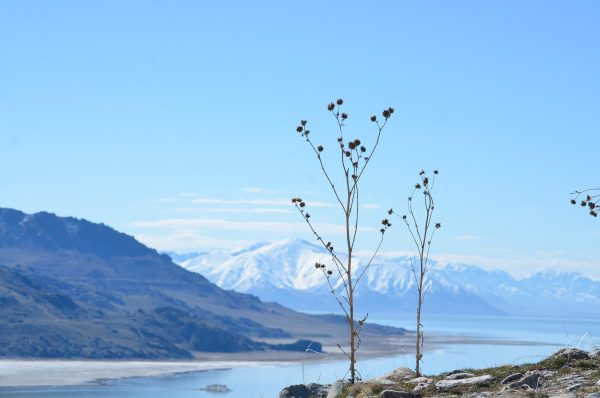
As I drove along the island’s roads, cutting through the hillside, I saw a beginning. In this poetry reading, and our interactions with the animals, there is a cooperation beginning to form, a deeper understanding between us and the natural world. The bison stroll across the road without a care. They are beginning to be at peace with us. There is still time.
There’s still time to save this lake and return its shores to the grander size they once were. We can restore the truly great lake that the ancient Indigenous tribes and the pioneers saw, and which held them, and us, here.
We must keep talking about the lake. We can’t fix Utah’s water problems overnight, but we can keep talking about the lake. We must keep writing poems for the lake, we need to be its voice. Those gathered on Antelope Island understand this. We are the Lake’s only voice. We are the ones to make it heard and the more we talk the more it will be heard.
We also need to listen to nature more. As you listen, you can hear nature’s harmony. Everything has evolved together; the bird songs complement each other. As we listen to the lake trying to stay in harmony with the rest of nature, we can find the right words to speak on its behalf. Near Antelope Island the lake is blue and it’s bright, the north arm is orange and teeming with brine shrimp, and the whole lake is alive.
I believe blue symbolizes more than distance. Blue is a metaphor for so many different things. It is hope and peace and expanse and eternity. But if we don’t do anything, this blue, this lake, our lake, will be distant. So next time you see the lake, you see that glittering blue, remember that we’re supposed to take care of it.
Or maybe just write a poem for it.
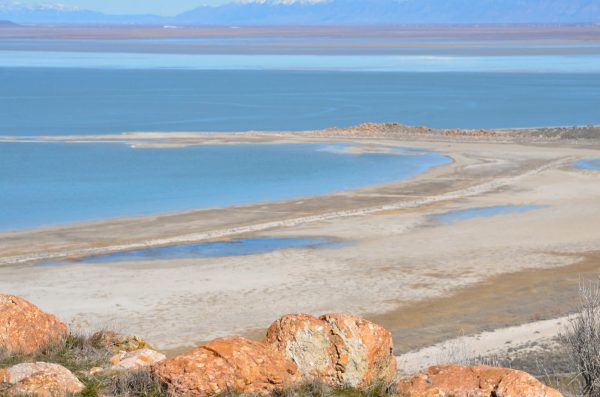
The post Blue As The Lake: The Power of Poetry appeared first on Wasatch Magazine.
Source: https://wasatchmag.com/blue-as-the-lake-the-power-of-poetry/


